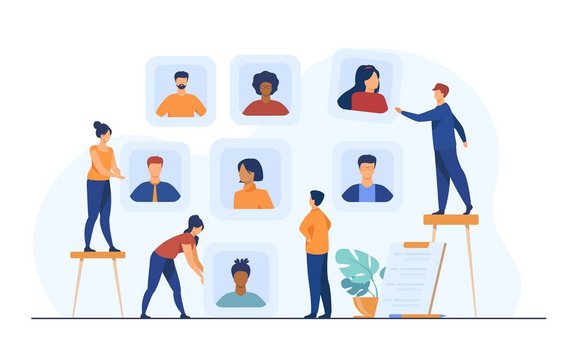
Target Groups
Knowing the target group is a must. For effective and efficient planning and implementation of knowledge communication measures, researchers need to know exactly who they want to reach. Socio-demographic characteristics such as age and gender or factors such as attitude towards the topic or prior knowledge play a role here.
For a better definition of and reflection on target groups, the Impact Unit's factsheet Thinking about target groups in science communication can be used. This provides examples of the factors and questions researchers should consider when selecting and defining their target group.
Experts from various institutions also discussed diverse approaches and aspects of addressing different target groups in three panel discussions organised by the OeAD Centre for Citizen Science.
1. Children and Youth
Review of the panel discussion: Learning to research. Practical science education for children and young people
Experts:
- Nicole Grüneis, Head of the Education & Cultural Education Department, Ars Electronica Centre
- Jacqueline Keintzel, former participant in a Sparkling Science project, CERN
- Philipp Spitzer, Sparkling Science project leader of We talk about science, University of Graz
- Andrea Zsutty, Director, ZOOM Children's Museum
2. The 30+ Target Group
Review of the panel discussion: Work, family and a full schedule! How to raise interest in science and research among the 30+ target group
Experts:
- Michael Knoflach, Sparkling Science project manager YOUhealTH, VASCage and Medical University of Innsbruck
- Angelika Purin, Head of Education, Jewish Museum Hohenems
- Michael Schöppl, Project Manager And in the middle of it all, science, ScienceCentre Network
3. Hard-to-reach Groups
Review of the panel discussion: Science for all? Hard-to-reach groups in citizen science and science communication
Experts:
- Philipp Schrögel, researcher and science communicator, University of Heidelberg
- Karoline Iber, Head, Children's Office, University of Vienna GmbH
- Barbara Streicher, Head, ScienceCentre Network
- Manfred Tscheligi, former Sparkling Science project manager BlindBits and Games4School, AIT Austrian Institute of Technology GmbH & University of Salzburg
- Veronika Wöhrer, Project Manager CoAct, University of Vienna



